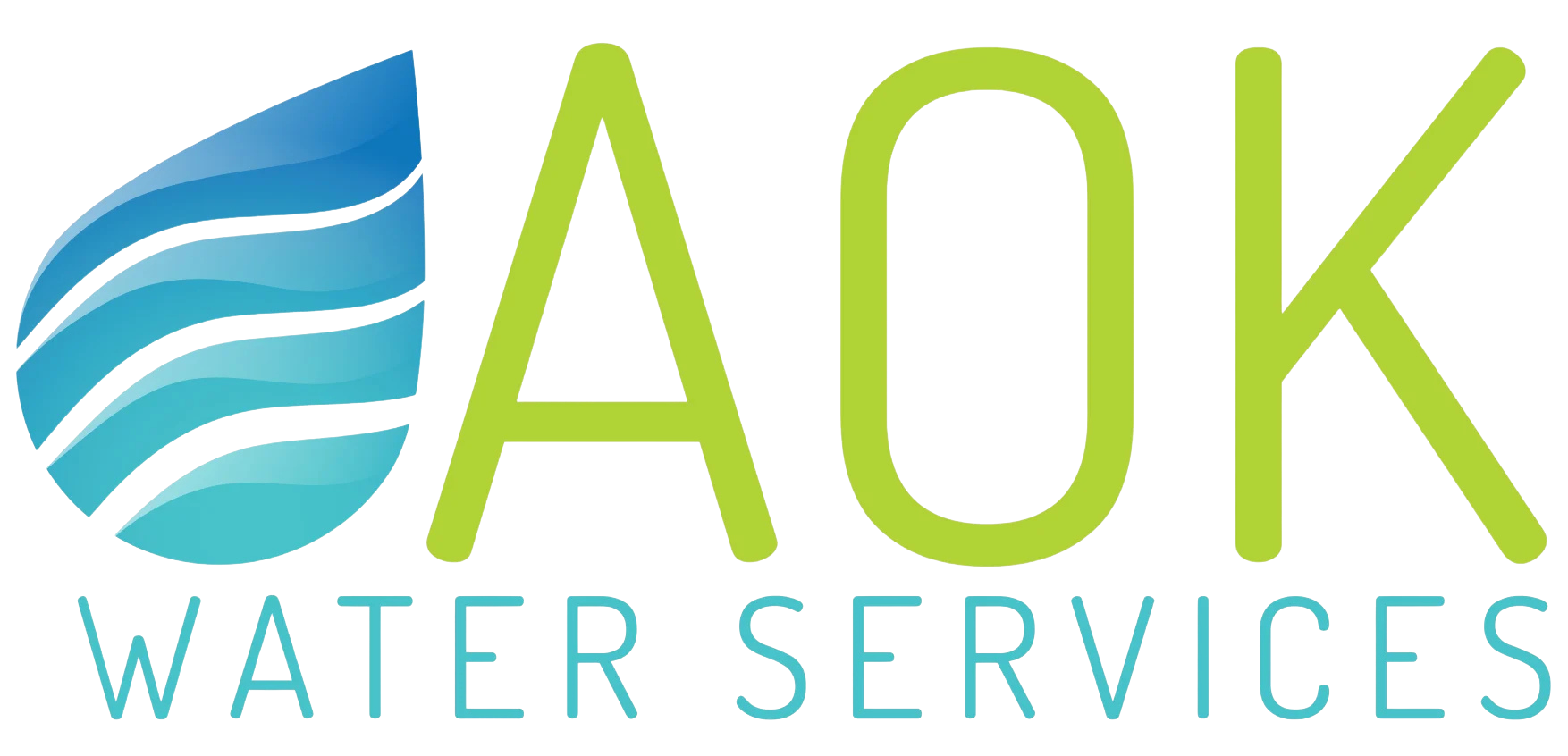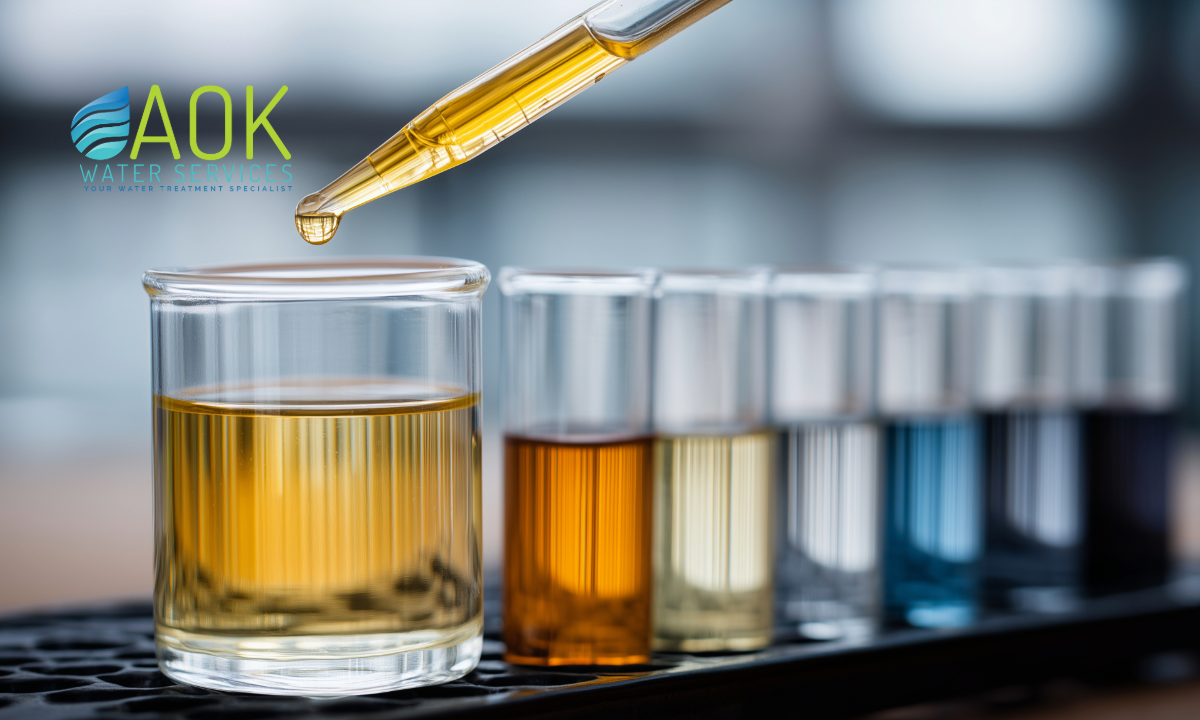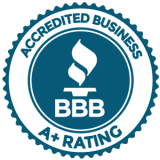By AOK Water Services, LLC | Largo, Florida
SUMMARY
Well water in Polk, Pasco, Manatee, Pinellas, and Hillsborough counties, Florida, poses significant health and home risks due to contaminants such as bacteria, nitrates, PFAS, heavy metals, and hard minerals stemming from the region’s porous aquifers, agricultural activities, and industrial operations. These pollutants can cause acute illnesses such as gastrointestinal issues, long-term conditions including cancer and neurological disorders, and practical problems like appliance damage and stained fixtures. Authoritative sources, including the Florida Department of Health and EPA, emphasize the need for annual testing and treatment, as private wells are unregulated and vulnerable to sudden contamination from floods or runoff. Investing in professional water treatment systems from AOK Water Services, LLC, provides essential protection through customized filtration, softening, and purification solutions tailored to the unique challenges of Central Florida.
Well Water Risks in Polk, Pasco, Manatee, Pinellas & Hillsborough Counties
In the heart of Florida, counties like Polk, Pasco, Manatee, Pinellas, and Hillsborough boast vibrant communities and abundant natural resources.
However, beneath the surface lies a critical concern: the quality of well water that many residents rely on for drinking, cooking, and daily needs.
Florida’s unique geology, characterized by porous limestone aquifers, makes groundwater highly susceptible to contamination from both natural and human sources.
With over 31,000 known areas of groundwater contamination statewide, private well owners in these central counties face elevated risks that can impact health, home infrastructure, and quality of life.
This article examines these dangers using data from authoritative sources, including the Florida Department of Health (FDOH) and the U.S. Environmental Protection Agency (EPA), and highlights the urgent need for reliable water treatment solutions.
Companies like AOK Water Services, LLC, with their specialized systems tailored to Florida’s challenges, offer a proven path to safer water.
Common Contaminants in Well Water
Well water in Polk, Pasco, Manatee, Pinellas, and Hillsborough counties is vulnerable due to the region’s karst terrain, agricultural activities, industrial sites, and frequent flooding. Contaminants can seep into aquifers through runoff, leaks, or natural dissolution, often going undetected without regular testing.
Bacteria and Microorganisms
One of the most immediate threats is microbial contamination, including coliform bacteria, E. coli, and other enteric pathogens.
These often stem from fecal pollution via septic systems, livestock, stormwater runoff, or wildlife.
In flood-prone areas like Pasco and Hillsborough counties, heavy rains can introduce these microbes into wells, especially after events like hurricanes.
The FDOH recommends annual testing for bacteria, as contamination can occur suddenly and without visible signs.
Nitrates and Chemical Pollutants
Nitrates, primarily from agricultural fertilizers and septic leaks, are a widespread issue in central Florida’s farming-heavy regions like Polk County. Other chemicals, including pesticides, industrial solvents, and petroleum products, enter wells from leaking storage tanks, landfills, or improper waste disposal.
In Manatee and Hillsborough, proximity to industrial zones heightens these risks. The EPA notes that such pollutants can accumulate over time, posing long-term hazards.
Heavy Metals, PFAS, and Radiological Substances
Heavy metals like arsenic and lead are naturally occurring in Florida’s aquifers but can be exacerbated by mining or pollution.
Recent studies have detected per- and polyfluoroalkyl substances (PFAS), known as “forever chemicals,” in 63% of Florida spring vents, including those feeding central aquifers.
Sources include firefighting foams and industrial discharges, with assessments around fire training sites revealing PFAS in nearby wells.
Radiological contaminants, such as radium and uranium, are also present due to the state’s phosphate-rich geology, particularly in Polk County.
These substances are monitored in delineated contamination areas by the FDOH and Florida Department of Environmental Protection (FDEP).
Hard Water Minerals and Other Aesthetic Issues
While not always a direct health threat, high levels of calcium, magnesium, iron, manganese, and sulfur cause “hard water” problems prevalent in the Floridan Aquifer underlying these counties.
Iron and sulfur lead to staining, foul odors, and metallic tastes, while hardness damages pipes and appliances.
In Pinellas and Pasco, these issues are compounded by groundwater overuse during droughts.
Health and Home Impacts
The consequences of untreated well water extend far beyond taste and odor.
Bacterial contaminants can cause acute illnesses like diarrhea, nausea, and vomiting, with vulnerable groups—including children, the elderly, and immunocompromised individuals—at higher risk.
Nitrates pose severe threats to infants, potentially leading to methemoglobinemia or “blue baby syndrome.”
Long-term exposure to chemicals, heavy metals, and PFAS is linked to cancer, neurological disorders, kidney damage, and endocrine disruption.
Radiological elements increase cancer risks over time.
On the home front, contaminants accelerate appliance wear, leading to costly repairs water heaters and dishwashers can fail prematurely due to scale buildup.
Skin irritation, dry hair, and stained fixtures are common complaints, diminishing daily comfort.
In a region prone to environmental stressors like algae blooms in nearby lakes (e.g., Polk County’s affected sites), the ripple effects on groundwater underscore the need for proactive measures.
The Solution: Water Treatment Systems by AOK Water Services, LLC
Given these pervasive dangers, relying on untreated well water is a gamble no family should take.
Professional water treatment systems provide a comprehensive shield, removing contaminants at the source and ensuring peace of mind.
AOK Water Services, LLC, a local expert serving Polk, Pasco, Manatee, Pinellas, and Hillsborough counties, specializes in tailored solutions that address Florida’s specific challenges.
Their whole-house filtration systems eliminate chlorine, chloramines, pesticides, and organic chemicals, while water softeners tackle hardness to protect your plumbing and appliances.
For drinking water purity, under-sink reverse osmosis systems remove heavy metals, nitrates, PFAS, arsenic, and radiological elements contaminants rampant in central Florida wells.
With free water testing and certified technicians, AOK customizes installations based on your home’s needs, using NSF-certified, eco-friendly technology.
Benefits include better-tasting water, healthier skin and hair, reduced energy bills from efficient appliances, and long-term health protection for your loved ones.
Choosing AOK means investing in local knowledge and reliable service, transforming risky well water into a safe, sustainable resource.
Wrapping up….
The dangers of well water in Polk, Pasco, Manatee, Pinellas, and Hillsborough counties from bacteria and nitrates to PFAS and hard minerals are real and multifaceted, rooted in Florida’s vulnerable aquifers. Authoritative sources confirm that without intervention, these risks can harm health and homes alike.
Don’t wait for symptoms or breakdowns; a professional water treatment system from AOK Water Services, LLC, is the smart, essential step to safeguard your family.
Visit our online booking today for a free consultation and take control of your water quality.
References
- Florida Department of Health. (2025). Private well testing. https://www.floridahealth.gov/environmental-health/private-well-testing/index.html
- Florida Department of Health in Manatee. (2025). Drinking water and private wells. https://manatee.floridahealth.gov/programs-and-services/infectious-disease-services/environmental-health/drinking-water/index.html
- Florida Department of Health in Gulf. (2025). Private well testing. https://gulf.floridahealth.gov/programs-and-services/environmental-health/private-well-testing/index.html
- Florida Department of Health in Pasco. (2024). DOH-Pasco urges residents to follow flood safety tips. https://pasco.floridahealth.gov/newsroom/2024/09/FloodSafetyTips.html
- Florida Department of Health. (2024). Florida healthy beaches. https://www.floridahealth.gov/environmental-health/beach-water-quality/
- Florida Department of Health in Brevard. (2024). Well surveillance. https://brevard.floridahealth.gov/programs-and-services/environmental-health/drinking-water/well-surveillance/index.html
- Florida Department of Health. (2021). Well delineated contamination areas. https://www.floridahealth.gov/environmental-health/drinking-water/Delineated-Contamination-Areas.html
- Florida Department of Health in Hillsborough. (2025). Well construction. https://hillsborough.floridahealth.gov/programs-and-services/environmental-health/drinking-water/well-construction.html
- Florida Department of Health in Polk. (2024). DOH-Polk cautions about blue-green algae at multiple lakes in Polk County. https://polk.floridahealth.gov/newsroom/2024/05/DOH-PolkCautionsAboutBlue-GreenAlgaeatMultipleLakesinPolkCounty.html
- Florida Department of Health in Hillsborough. (2025). Wells – disinfecting after a flood. https://hillsborough.floridahealth.gov/programs-and-services/environmental-health/drinking-water-education/flooded-wells/index.html
- Florida Department of Health. (n.d.). Safe well water. https://www.floridahealth.gov/environmental-health/private-well-testing/_documents/safe_well_water_07.pdf
- University of Florida Health. (2025). Map shows state of ‘forever chemicals’ in Florida water. https://ufhealth.org/news/2025/new-research-map-shows-levels-of-forever-chemicals-in-floridas-water
- U.S. Environmental Protection Agency. (n.d.). Potential well water contaminants and their impacts. https://www.epa.gov/privatewells/potential-well-water-contaminants-and-their-impacts
- Fight For Zero. (n.d.). How Florida’s drinking water is easily contaminated. https://www.fight4zero.org/drinkingwater
- Reddit. (2023). Florida water is bad mmkay. https://www.reddit.com/r/florida/comments/175pk8z/florida_water_is_bad_mmkay/
- Panhandle Agriculture, University of Florida IFAS. (2022). Protect your well water quality. https://nwdistrict.ifas.ufl.edu/phag/2022/04/22/protect-your-well-water-quality/
- St. Johns River Water Management District. (n.d.). Drought-proof your well. https://www.sjrwmd.com/education/drought-proof-well/
- Orange County Government. (n.d.). Water quality. https://www.orangecountyfl.net/WaterGarbageRecycling/WaterQuality.aspx
- Florida Department of Health. (2024). Emerging contaminants. https://www.floridahealth.gov/environmental-health/hazardous-waste-sites/contaminant-facts/emerging-contaminants.html
- Florida Department of Environmental Protection. (2020). 2020 integrated water quality assessment for Florida: Sections 303. https://floridadep.gov/sites/default/files/2020_IR_Master_FINAL%2520-%2520ADA.pdf
– Kevin, Owner of AOK Water Services
📞 Call Kristie or Kevin today at 727-709-0889
📩 Or contact us online.




